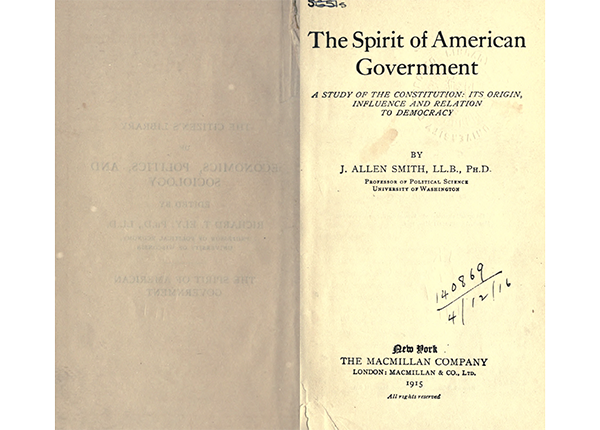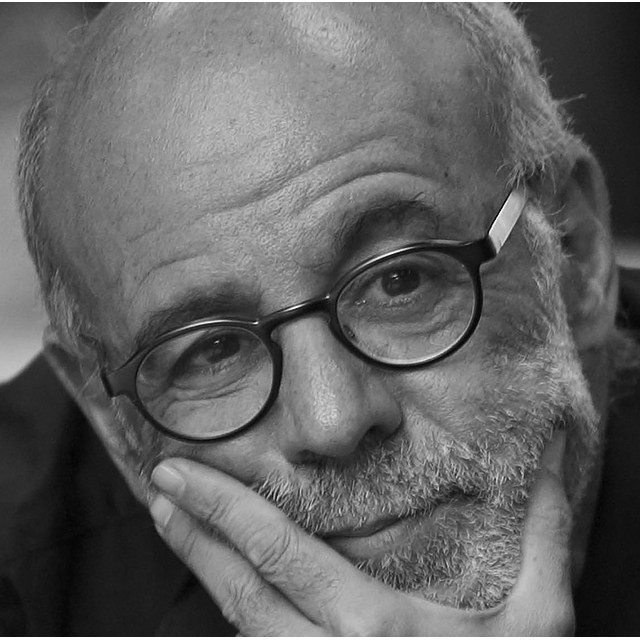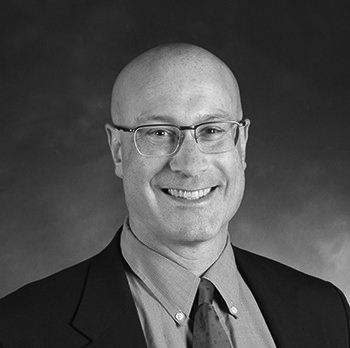Historic Document
The Spirit of American Government (1907)
J. Allen Smith | 1907

University of Toronto, Robarts Library
Summary
The Missouri-born University of Washington political scientist J. Allen Smith joined a raft of journalists, lawyers, and academics at the turn of the twentieth century who raised challenging questions about the relationship of the Constitution as it had been framed in the eighteenth century to popular government. Smith, along with others like Gilbert Roe, William Allen White, Gustavus Myers, and Charles Beard, argued that the nation’s constitutional design had been structured as it was as much out of a fear of, and even hostility to, popular rule of the sort now being leveraged by political reformers to reclaim power from economic and political elites, as it was to advance the cause of democracy. This raised serious questions about whether the American people could find their path forward under the terms of the Constitution, or whether it needed to be more broadly interpreted, amended, or replaced.
Selected by

William E. Forbath
Lloyd M. Bentsen Chair in Law, and Associate Dean for Research, The University of Texas at Austin School of Law

Ken I. Kersch
Professor of Political Science, at Boston College
Document Excerpt
The general recognition of the true character of the Constitution is necessary before we can fully understand the nature and origin of our political evils. It would … strengthen and advance the cause of popular government … [to recognize that] the so-called evils of democracy are very largely the natural results of those constitutional checks on popular rule which we have inherited from the political system of the eighteenth century….
Constitutional government is not necessarily democratic. Usually it is a compromise in which monarchical and aristocratic features are retained…. Every step toward democracy has been stubbornly opposed by the few, who have yielded to the popular demand … only what necessity required. The constitution of the present day is the outcome of this long-continued and incessant struggle…..[M]any of those who had espoused democratic doctrines during the Revolution became conservatives after the war was over. These classes were naturally opposed to the new political doctrines which the Revolutionary movement had incorporated in the American government….Democracy – government by the people, or directly responsible to them – was not the object which the framers of the American Constitution had in view, but the very thing which they wished to avoid…. [T]he efforts of the Constitutional Convention were directed to the task of devising a system of government which was just popular enough not to excite general opposition and which at the same time gave to the people as little as possible of the substance of political power….
Our Constitution embodies the political philosophy of the eighteenth century, not that of today. It was framed for one purpose while we are trying to use it for another….




